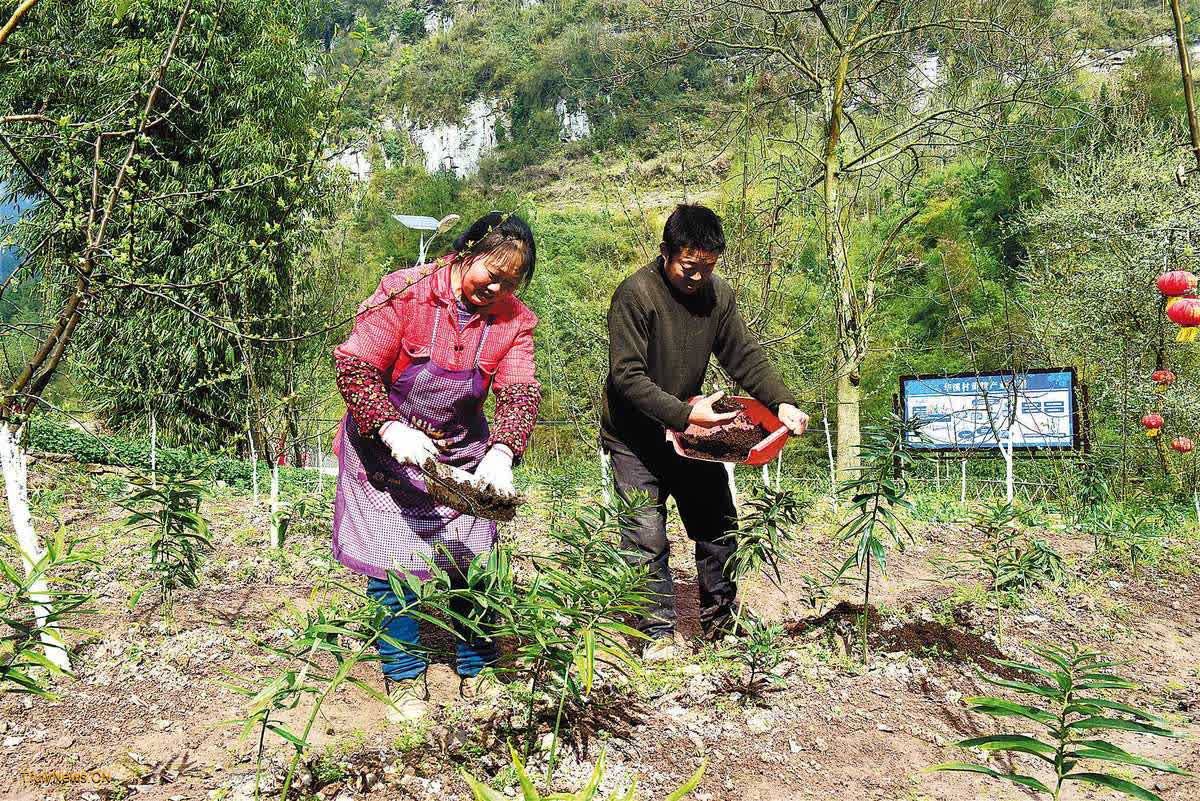
In Shizhu Tujia autonomous county under Chongqing municipality, the 388,200-odd residents are mainly located in the Dalou range of the Wushan Mountains, with most of the range being medium and low hills.
In Huaxi village in Zhongyi township, located at an elevation between 800 and 1,400 meters with 540 households, members of its art troupe gathered at the village center on a clear night, carrying their red waist drums and dancing energetically to the rhythmic beat.
Farmers Xie Xiangxiu and Tan Mingqiong said that since they started to learn waist drum dancing, they have become healthier and happier, noting that the cultural activities have boosted their enthusiasm and created a forward-looking, more optimistic atmosphere.
Tan Minglan, owner of the local Happiness Rice Tea Shop, smiled, noting that, “Our village’s tourism is booming, and I can sell up to 200 bowls of rice tea at 3 yuan (41 US cents) each in a single day.”
By the end of 2023, the village’s per capita annual income had reached 25,110 yuan, and collective economic income hit 2.37 million yuan, with cumulative dividends of 2.258 million yuan shared among villagers, further enhancing their sense of happiness and achievement.
The happy lives of the 1,460 residents, who are composed of five ethnic groups including Tujia, Han and Miao, grew from the transition from being a poor village into a prosperous one, and being dubbed a “National Model Collective for Ethnic Unity and Progress “recently.
Years ago, Huaxi had an inadequate infrastructure, its mobile signal coverage was poor, communication was mainly done by shouting, and poor road conditions forced residents to walk about on foot.
With strong policy support, the village has improved its infrastructure, building 20.9 kilometers of new roads, 29.5 km of pedestrian pathways, and 14.26 km of tourism trails.
Meanwhile, water and power supplies have been expanded and 4G base stations installed, bringing full coverage of water, electricity and communication services, and consequently opening up new economic opportunities, recalled Wang Xiangsheng, the village’s Party secretary.
“With improved infrastructure, the village has transformed itself into a beautiful rural landscape, resembling a small town, and many city dwellers come here to relax on weekends,” he said.
By pioneering an “intangible cultural heritage + research + tourism”, the village has promoted its traditional crafts like Chinese bee farming, tiger doll making and bamboo weaving, and highlighted traditional events such as lantern shows, dragon dances and bonfire parties, attracting 160,000 tourists in 2023 alone.
The village has also explored other industries to boost the income of villagers, transforming local resources into assets and letting farmers become shareholders, cultivating 66.7 hectares of agribusinesses, such as yellow ginger, quince and crispy peaches.
“Our strength comes from our joint efforts and ethnic unity,” said Wang, noting that the village encourages its residents to live a harmonious and united life, and work together for a prosperous future.
He said the village has also gained a row of other honors, such as a National Demonstration Village for Democracy and Rule of Law in 2021 and a National Poverty Alleviation Observation Site in 2022.